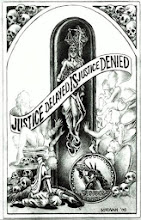

IAEA rewarded for failure, say critics
* Rights groups accuse nuclear watchdog of helping nuclear proliferation by promoting civilian nuclear power
PARIS: Green activists voiced outrage after the UN’s International Atomic Energy Agency was awarded the Nobel Peace Prize on Friday, saying the IAEA had helped military nuclear proliferation by encouraging civilian nuclear power.A French group, Sortir du Nucleaire (Get Out of Nuclear) said the IAEA should be scrapped because, by “promoting” civilian nuclear plants, it had given countries the means to build atomic bombs. “The IAEA is hoodwinking the public by claiming that its inspections are preventing access to nuclear weapons by countries that have signed the (nuclear) Non-Proliferation Treaty,” Sortir du Nucleaire said in a press statement.
“India, Pakistan and Israel have joined the five ‘great powers’ (the United States, Russia, China, France, Britain) in having an unjustifiable right to possessing nuclear weapons and in not meeting their pledges on nuclear disarmament. “Recent developments (Iran, North Korea etc.) have confirmed the IAEA’s patent failure,” it said.
In Amsterdam, Greenpeace International spokesman Mike Townsley acknowledged that IAEA chief Mohamed ElBaradei had been “a voice of sanity” in his advocacy of a nuclear-free Middle East. But, Townsley told AFP, ElBaradei was trapped by the IAEA’s “contradictory role, as nuclear policeman and nuclear salesman.”
The agency’s dual function was to promote civilian nuclear energy and at the same try to prevent countries from using the self-same technology to make nuclear bombs, he said. The Nobel Committee said the IAEA’s work was “of incalculable importance” at a time when disarmament efforts “appear deadlocked, when there is a danger that nuclear arms will spread both to states and to terrorist groups, and when nuclear power again appears to be playing an increasingly significant role.”
George Monbiot, a radical author and commentator with the British daily The Guardian, said the 2005 prize to the IAEA and its boss “was a reward for failure in an age of rampant proliferation.”
He saw a parallel with the controversial awarding of the 1973 Peace Prize to Henry Kissinger.
The former US secretary of state and national security advisor helped extend the Vietnam War to Laos and Cambodia before negotiating the conflict’s end.
“The currency (of the Nobel Peace Prize) is beginning to be devalued,” Monbiot said. The Nobel jury has rewarded nuclear non-proliferation twice before in the past two decades, also on major anniversaries of the nuclear bombing of Hiroshima and Nagasaki in 1945.In 1995, the coveted award was given to the Pugwash group and its founder Joseph Rotblat, and in 1985, International Physicians for the Prevention of Nuclear War received the prize.
In Nagasaki, Senji Yamaguchi, a nuclear bomb survivor nominated for the peace prize, accused the Nobel jury of passing over his group so as not to offend the United States. He also called on the IAEA and ElBaradei to “work harder” to prevent the risk of another nuclear bomb attack.Yamaguchi’s group, Nihon Hidankyo, which includes survivors of the Hiroshima and Nagasaki attacks, has lobbied for the abolition of nuclear weapons and demanded the Japanese government provide compensation for nuclear bomb victims.
In addition to their traditional worries about nuclear proliferation, environmentalists are concerned that the civilian nuclear industry - dealt a crippling blow by the 1986 Chernobyl disaster - is on the rise once more.
Nuclear power is becoming eagerly pursued in China and India to help meet surging energy needs at a time of expensive, vulnerable oil supplies.
And in Europe, some countries that vowed to scrap or freeze their nuclear power programmemes are now discreetly looking at reviving them to meet their commitments on greenhouse-gas pollution from fossil fuels.


0 Comments:
Post a Comment
<< Home